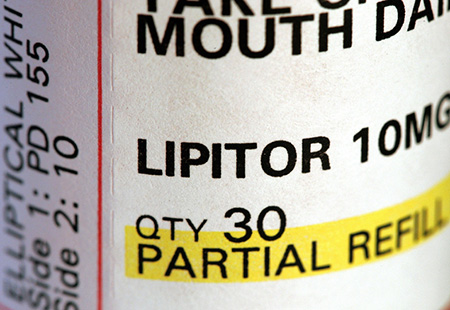 Physicians should exercise greater vigilance in prescribing statins to prevent heart disease and stroke, because the harmful side-effects may outweigh the potential benefit for many patients, according to a report from the Therapeutics Initiative of the University of British Columbia.
Physicians should exercise greater vigilance in prescribing statins to prevent heart disease and stroke, because the harmful side-effects may outweigh the potential benefit for many patients, according to a report from the Therapeutics Initiative of the University of British Columbia.
The Therapeutics Letter, which is sent to prescribing physicians and pharmacists throughout B.C., is the third report from the Therapeutics Initiative (TI) to address statins, which are the world’s most widely prescribed class of drugs. Therapeutics Letters summarize evidence from drug trials and other types of studies, and are reviewed by 60 experts and primary physicians before publication.
Available since 1987, the use of statins continues to rise, driven in part by guidelines from the U.S. government and medical groups that endorse the drug’s use as a preventive measure for a wider segment of the population, based on risk factors such as blood pressure, cholesterol, diabetes, age and gender. Two of the most widely known versions are Lipitor (made by Pfizer) and Crestor (made by AstraZeneca).
Statins inhibit an enzyme in the mevalonate pathway, a series of metabolic reactions that produce cholesterol. That pathway, however, also plays an important role in producing heme, certain proteins, sex steroids, corticosteroids, bile acids and vitamin D.
The most common adverse side effect of statins are muscle pain or weakness. The TI suggests that falls by the elderly might be traced back to statin use, and that these symptoms might also interfere with exercise, which is the best way to prevent heart attacks or stroke.
Other common side effects revealed by drug trials include reductions in cognition, cardiorespiratory fitness, energy and sleep quality, along with the onset of diabetes. Large observational studies have also have demonstrated a link between statins and liver dysfunction and kidney failure.
“It is clear that the magnitude of statin harms is greater with high doses than with low doses,” the letter states, “and that the added benefits of high doses is unlikely to exceed the magnitude of the harms in most if not all cases.” The letter warns that many of the negative side effects are subtle, so physicians need to be especially vigilant about their patients’ reaction to the medication.
The Therapeutics Letter noted that awareness of the harms of statins has been limited for several reasons: most of the scientific literature focuses on the benefits; some drug trials exclude people who aren’t tolerating the drug well; official warnings from the U.S. and Canadian governments have been released slowly and with little impact.
Therapeutics Letters, along with the TI’s other work, is funded by the B.C. Ministry of Health through a grant to UBC. The TI provides evidence-based advice about drugs but is not responsible for provincial drug policies.
The full Therapeutics Letter is here.
News media: If you are interested in speaking with the authors of this Therapeutics Letter on statins, please contact:
James Wright
Professor, UBC Departments of Anesthesiology, Pharmacology & Therapeutics and Medicine
Co-Managing Director and Chair, Therapeutics Initiative
Office: 604.822.4270
TI office: 604.822.0700
Email: jim.wright_at_ti.ubc.ca
Tom Perry
Clinical Assistant Professor, UBC Department of Medicine
Chair, Education Working Group, Therapeutics Initiative
Pager: 604.707.1427
Email: tom.perry_at_ti.ubc.ca